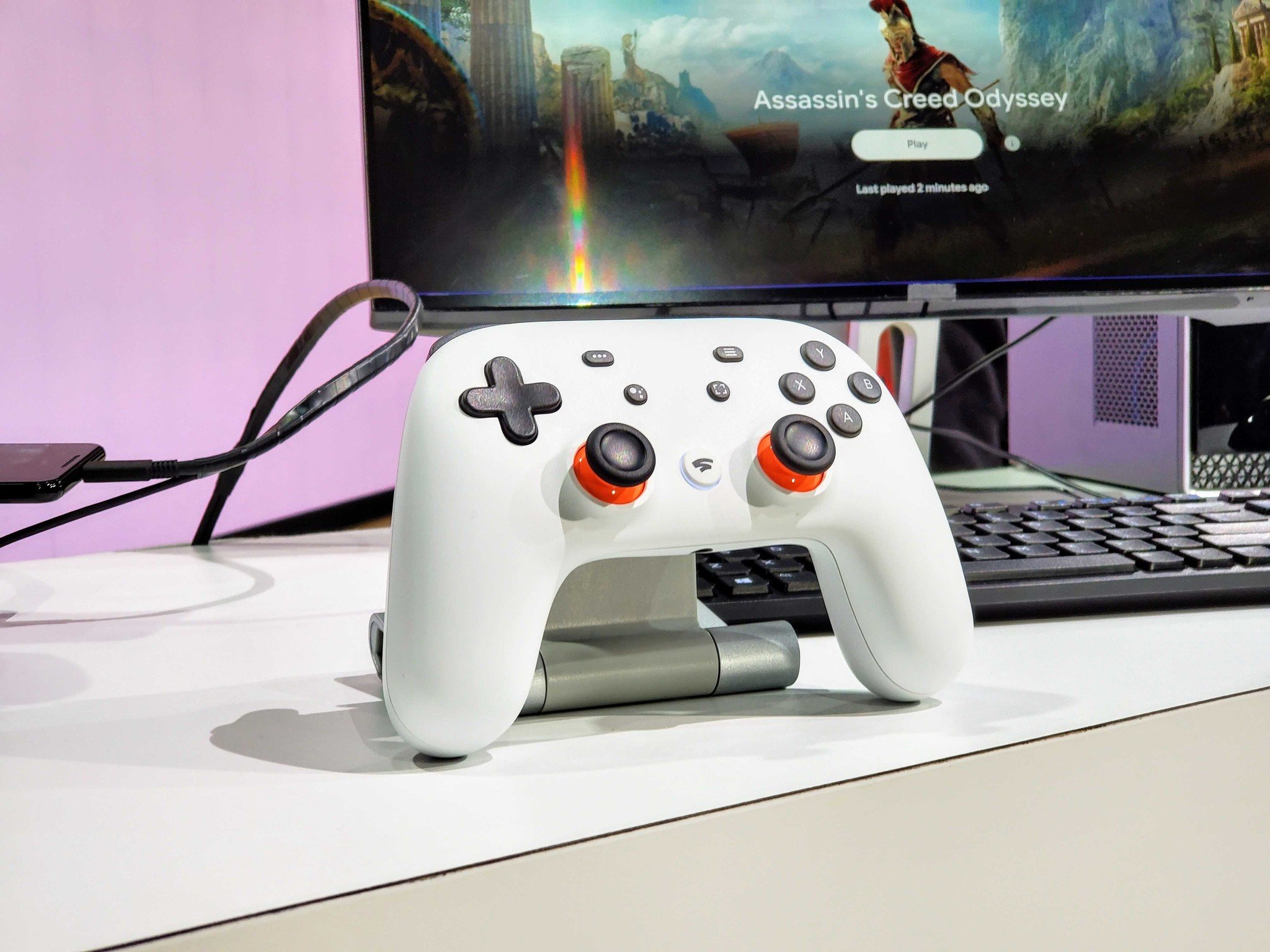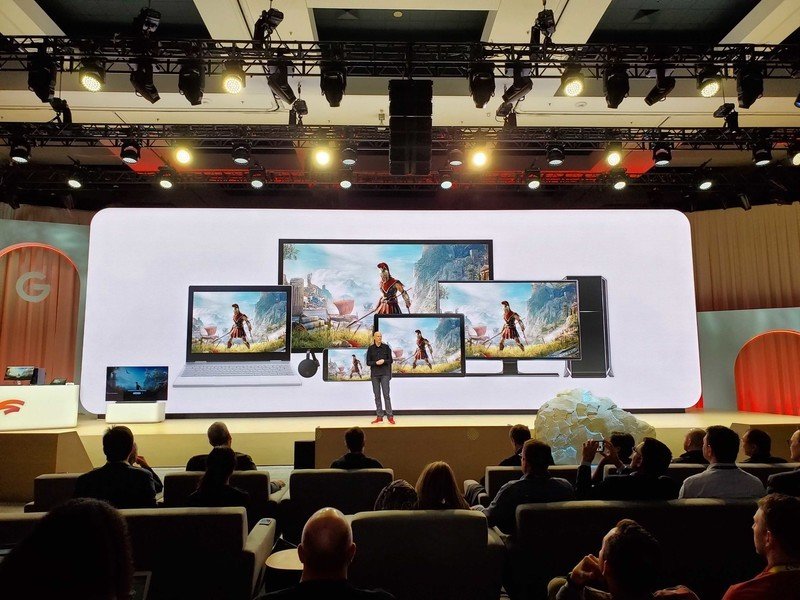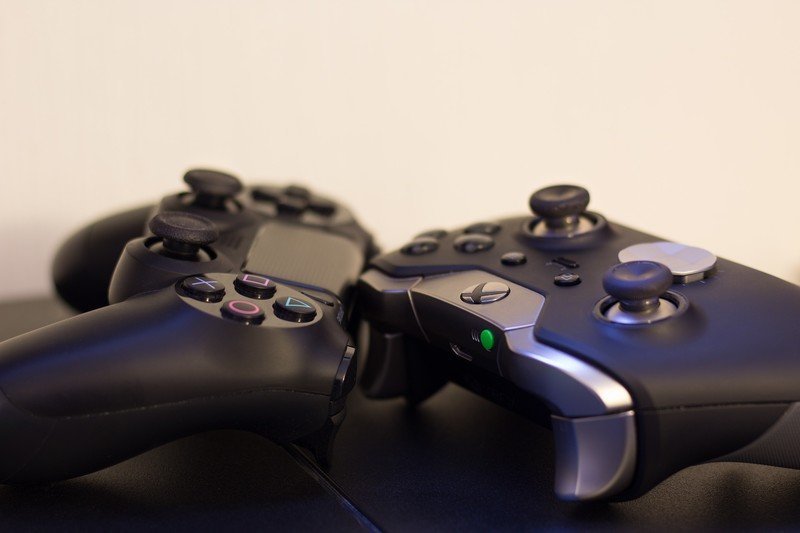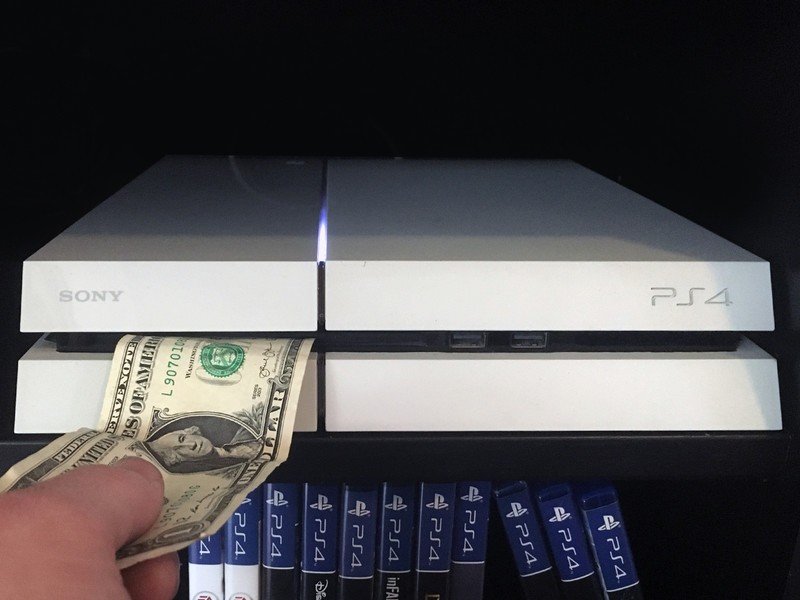Stadia doesn't solve the gaming industry's biggest issue on its own, but it certainly helps

If you read my piece a few weeks ago about the greatest phone that ever existed (go ahead, fight me on it), you knew how excited I was for GDC. That's because I knew Google was about to announce one of the biggest threats to the gaming industry's status quo since Battle Royale games became mainstream.
Google's Stadia, as it's known, is very forward-thinking stuff. It's a gaming system that promises high-quality games with low-cost barriers, flexibility, accessibility, ubiquity, mobility, and creativity. It promotes inclusion and celebrates the diversity of gamers. That's everything to me.
Stadia: What you need to know about Google's game streaming service
Russell Holly seems pretty excited about it, too. (Then again, when isn't he excited about new tech?) And yet, I can't help but think that even if this incredibly ambitious undertaking pans out, we still won't be quite exactly where we need to be.

The technology behind Stadia is one thing, and it's something Google has enough confidence in to bring such a tangible product to market so soon. There will be a glut of hurdles to clear and there's no guarantee this launch will go off without a hitch.
We also have the question of content, which Google also seems to have keyed in on early. Already, Google knows it has a chicken and egg situation on its hands because developers won't make games for a system that has no players, and players won't buy into a system that has no games. Jade Raymond is one of the best people to take on that task, so Google gave her a whole company for the purpose of producing original content and courting developers to bring their creations over.
The gaming industry is unique in that way because it's one of the only mediums of entertainment that requires specific pieces of hardware to enjoy, and being successful in this industry is all about convincing people to spend their hard-earned money on your platform. Convincing people to buy your product is the most basic requirement of capitalism, actually, but the unique circumstances surrounding the gaming industry make its plight that much more difficult (though that also makes its brisk growth a lot more impressive).
Be an expert in 5 minutes
Get the latest news from Android Central, your trusted companion in the world of Android
The games will make or break Stadia, and Google knows it.
I look at all of this at the macro level and I see something that I like, and I see something that I want to be a part of, and so I'm going to be on Stadia the very same day it launches. But I still worry that Stadia, as it stands right now, is a bit too early to the party.
We all have our reservations about the technological feasibility of it, but I'm wondering if the industry is ready to mature in a different way. With the rise of Sega and Nintendo, the gaming industry became a vicious cutthroat thing of a thing that featured a lot of bitter competition.
Don't get me wrong, competition is a good thing, and it was good competition, but not everything these companies did to win was in the best interests of the people who lined their pockets. Exclusive titles, proprietary accessories, walled garden ecosystems, and childish E3 jabs — these practices gave us the sense that these companies were more engaged in bitter war than healthy competition.

And we as gamers just accepted that. We even embraced it. We made memes about it. The console wars had gotten so gory that people would spend their hard-earned money buying rival hardware to take them into the street and destroy them. All the while, Nintendo, Microsoft, and Sony are taking that money you spent on the console you hate so much and laughed all the way to the bank.
The gaming industry is massive now, and such big spurts usually necessitate even bigger changes. Game development has become so expensive that publishers have had to change strategies and priorities. Games launch with highly questionable levels of quality and constant reassurances by the developers who put them out that things will change as time moves on.
Indeed, many of the top companies end up putting their money where their mouth is, delivering fresh content months and years from launch, all the while fixing the broken stuff they willingly left in the game in order to meet a release deadline. But they still have to make money to deliver all of that, so we're charged extra for said content, and we're even charged for stuff that should have been in the game at launch.
As much as I love gaming, even I've had enough of the way this industry works.
I will never forget Capcom locking Resident Evil 5 content — content that was available at launch and already burned to the disc — behind a paywall. I was extremely livid and swore them off, but the trend didn't stop. Games still had paywalls and microtransactions. Developers still held onto tiny bits of content to later push as incentives for pre-ordering. Those tiny bits became enormous chunks.
Destiny was one of the most highly-anticipated games of its time, and Bungie certainly has the skill to execute the vision it had. But Activision thought it necessary to put it on the chopping block and limit the initial scope of it, only to sell all of it back as overpriced downloadable content. Again, I swore to boycott Activision. I did the same with EA. And Rockstar. Then Ubisoft. It's becoming too hard to run away from because no matter how I feel about it, I still want to play all the fun games these companies make.
Here's the problem, though: not everyone can or cares enough to see it that way. A lot of people who play games don't understand what goes into making them. They feel shafted because the overall quality of games has worsened, and yet the hobby is still offensively expensive.
Gamers also have shorter attention spans and plenty of options for alternative entertainment. Free-to-play games can provide you more fun than something you might pay $100 for. Noticing this trend in my own gaming habits, I was suddenly OK with waiting a few months for that hot new game I want to go on sale.

It sucks. As someone who once aspired to be a game designer, I want nothing more than to support developers for the amazing work they do, and yet I feel I have no choice but to take a stand and join the growing ranks of people who have had enough and are no longer interested in pouring tons of money into a hobby that has lost a lot of what made it special.
The biggest shift in gaming culture came this past year when Fortnite took the world by storm. It was a free-to-play title with a unique take on a hot new genre that people can't seemingly get enough of.
Fortnite had basketball stars and rappers making noise on the internet. The various dances featured in the game are referenced and used heavily in pop culture. It was the game that finally made gaming feel like a legit hobby I could be proud to enjoy instead of that thing people do when they have nothing else to do.
No matter how I feel about Fortnite today, I can always appreciate what it did for the gaming industry. Its biggest contribution was changing our minds on cross-play. As someone who, on multiple occasions, has bought the same game on multiple platforms to play with friends who couldn't buy all the consoles, I grew frustrated.
Imagine if there was no way for an iPhone user and a Galaxy user to call and text each other. Imagine if you had to buy a special box to watch Game of Thrones. Imagine if that new Drake track worked #OnlyOnBose. That's not to mention the people who can't do that even if they make the conscious decision to. It's not financially feasible for everyone.
Beyond monetary concerns, it also meant that I was on different progression tracks. We spend hours, days, weeks, months, and years putting our all into our characters and cars, ranking up and getting new gear, completing a game and getting all the collectibles and achievements so we can say we experienced it all. But all of it disappears when you want to play the same game on another console. Again, this is all considering you can even afford to do it, which many young people can't.
It no longer makes sense to lock us into a single platform.
Stadia was designed with all these things in mind, but the platform itself isn't enough. The major players in this game need to get on board. Sony, Microsoft, and Nintendo need to come together and find a way to make this happen that still allows them to rake in the dough.
They're deathly afraid of changing what's worked because no one wants to be the next Sega or Atari. At the same time, they know that if they don't take care to listen to the industry and deliver what we want, they could very well see that fate, especially when someone with as much clout as Google is threatening to disrupt it.
We saw hints of that at the Game Awards when executives from the Big Three shared a stage and told us that they're listening. That's why Nintendo and Microsoft are seemingly best friends who share technology and games now.
Even Sony was forced to step down from its pedestal and play nicely once it saw people were willing to play Fortnite on a different platform. That's because the power of consumer desire is much stronger than you think. The power of their dollar is even stronger.
That's why Stadia is so important to me. Google is preaching the way of the future, and it's something I'm deeply passionate about. Microsoft might end up having a more appropriate product and business model that fits that future better than Stadia, but I can't make that determination today. All I know is that the industry is trying to move forward, and I will be one of the people on that ride once the wheels get rolling later this year. I hope many more will join me.

